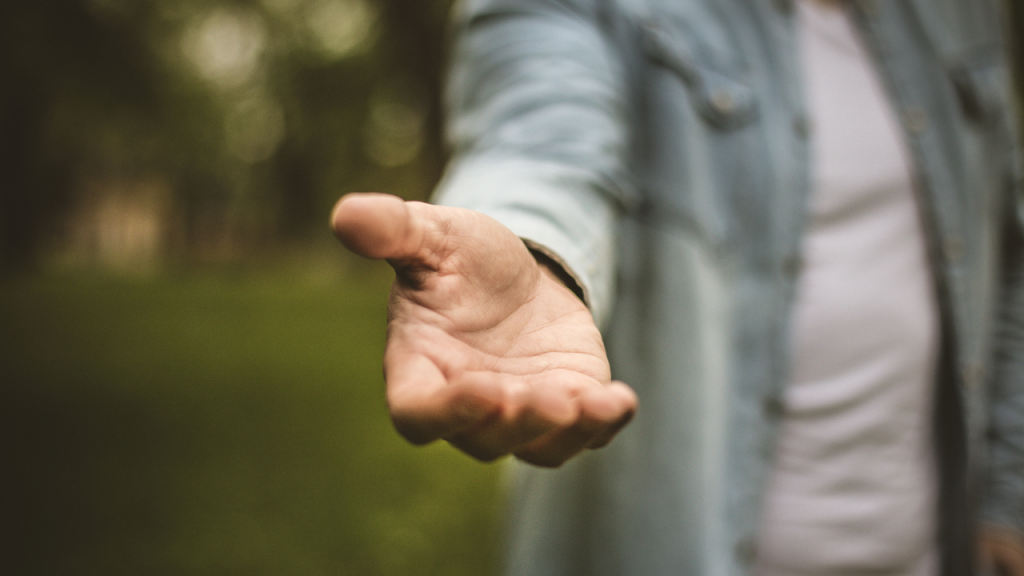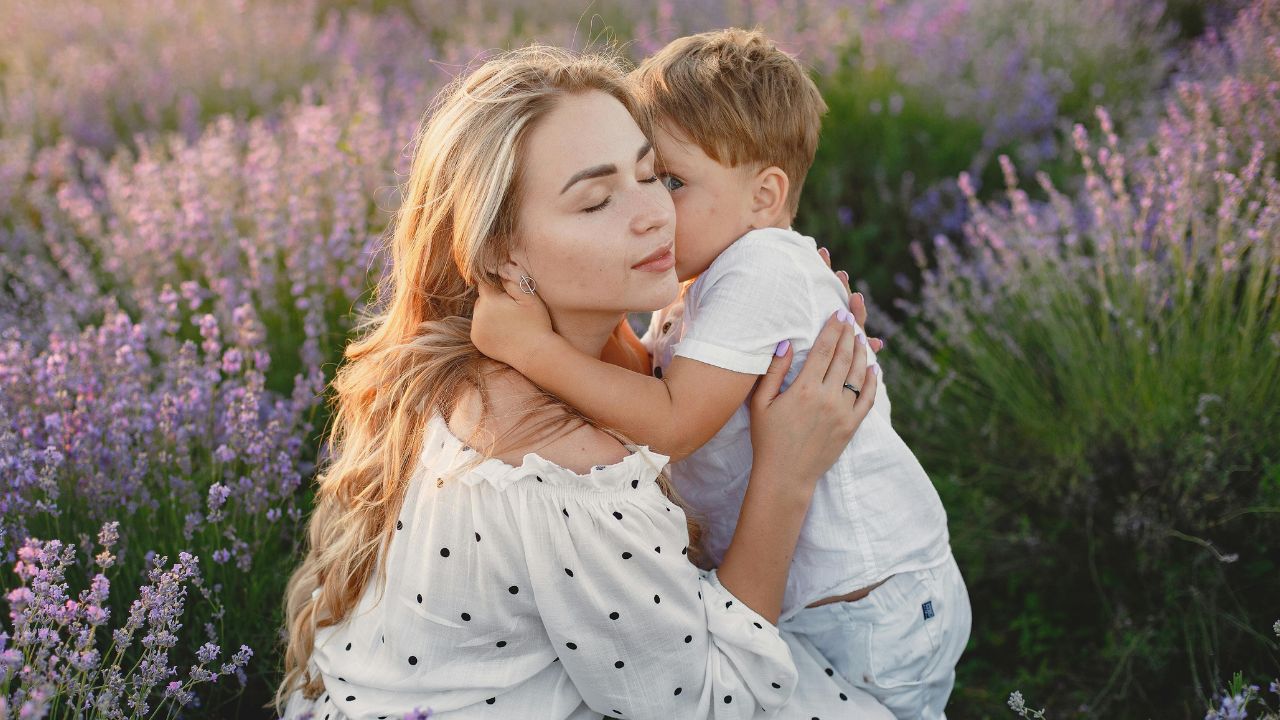
Empaths often experience intense emotions and heightened sensitivities, which can lead to a unique set of challenges. While their ability to feel and understand the emotions of others can be seen as a gift, it can also feel like a burden. This duality raises the question: is being an empath truly a blessing or a curse?
In this post, we explore the gift of compassion, being a natural nurturer, and an empath. It’s basically the same thing, but it uses different wording.
The bleeding empath
Being an empathic person is a valuable and beautiful gift, but until we have accessed the benefits of this gift, stopped trying to fit into an environment where we do not thrive, and stopped people-pleasing, it can feel like a complete curse, draining the life out of us.
I don’t know how many times I’ve heard people around me say, ’I wish I could just be less empathetic and don’t care so much.’ However, this is the state of a bleeding empath, a drained one. It does not have to be this way.

Being a nurturer is not considered a gift in all parts of the world
Depending on where you are in the world and which culture you grew up in, some gifts and personality traits are going to be considered more valuable than others.
I believe that in several parts of the world, being an empath and a nurturer is not really considered a gift at all – yet they are! It might be something that we just take for granted or something we practice when the ”more important” things are done for the day.
However, being a compassionate and nurturing person is a huge gift, and sometimes, truly seeing and listening to someone is the most important thing we can do. It can actually create a ripple effect leading to, metaphorically speaking: moving mountains!
Being compassionate can get you into trouble
But if you are a compassionate person, this skill, this gift of yours, might have made you swim in really deep waters. It might be really difficult to discern who and what to be nurturing and compassionate towards.
Let’s explore further!

Your empathy comes naturally to you, but you need to learn discernment
If you have the gift of compassion and empathy, it’s just a part of you, and it comes so easily and so naturally to you. However, many people tend to take this empathic side of you for granted, meaning that empaths have to learn discernment. If you don’t, you will feel taken advantage of, used, and drained, as if you are constantly giving without receiving anything in return.
When we carry unhealed wounds out of survival
It’s easy to pour into the wrong people and organizations. I believe this is the little tricky journey every empath needs to take just as a learning experience, discerning where to use our gifts and pour our empathy.
Not every person who cries is worth our energy; some individuals cry for self-serving and destructive reasons, and your empathy will do no good in such cases. And if you constantly show up for people in these situations, you will not feel very good.
Perhaps if you struggle with codependency, you will feel good because you feel like you are needed, but this is a very destructive pattern we really should aim to break free from and heal from.
This leads us to the other way we need to learn discernment…
We need to discern within ourselves:
- Why we give
- Why we show up for people
- Why we nurture
- Why we are compassionate
Because we often act out of survival if we haven’t engaged in any type of inner work and healed our past painful wounds and experiences. Some inner reflection is necessary to discern when our actions stem from love and care versus when they arise from a survival instinct and fear.
If we don’t reflect, we simply do things on autopilot, just as we have always done. The mental programs creating our behaviors were probably manifested in us at a very young age, meaning we do not remember not having these patterns. They are automatic programs that are such a big part of us, so we don’t know any other way of being.

Growing up, you became highly sensitive because it was beneficial to you
We most likely grew up in an environment where we had to practice this gift of compassion a lot. We practiced it a lot because we had an environment that made us feel more secure and safe if we had compassion if we were nurturing and if we made life about someone else instead of us.
We became highly sensitive, and we felt the energy, moods, and everything around us, as that was beneficial for our survival.
Being an empath: You know what people need without them having to tell you
People with the gift of compassion so often take on people’s emotions. And they need to learn not to do that because they can’t walk around taking on other people’s energy and emotions; that will really drain them. However, this makes them wonderful nurturers. They see what people need when they can’t say it themselves.
You may be a natural peacemaker because you had to calm down conflicts growing up
You might be brilliant peacemakers and mediators. You can read people and sense what they feel, and you understand what is being said without anyone actually having to say it. You understand the secondary and primary emotions, meaning when someone is angry, you know that what they are actually feeling is unseen, so you can fulfill their primary emotion.
However, this is not always easy and can be a bit tricky. In general, you are very connected to others, both young and old. You might also have a strong connection to animals and plants.

People with high empathy feel their surroundings more intensely
With this gift, you have a great deal of compassion, both one-on-one with individuals and animals, as well as with the population, the community, and the collective. If something is going on in the world, with the environment, or in society, at your work, you can feel it. And if it’s a negative, destructive thing, that will likely cause you a great deal of pain.
We are not focusing on job descriptions, but here are some ideas…
I’m not specifically discussing job descriptions in this post, but to give you an idea, you might be drawn to working with older people and children, engaging in voluntary work, or working with the land, such as caring for the Earth. And you are perfectly suited for these kinds of roles, as you possess such an empathetic energy. You absorb other people’s energy, and you sense what they feel. It’s a blessing, and it can also feel like a curse.

Do you absorb other people’s negative energy?
Perhaps you’re also the person that other people feel really good about, but you might also be a person who takes on other people’s problems. So, when you spend time with a certain type of person, they may feel great, but you feel drained and awful because they have dumped their dark energy and problems onto you.
And there you are sitting with their problems and their dense energy, and you wonder why. So, if you have this gift, you need to learn how to cleanse your energy, how to stay in your energy, choose with your intention when to feel others and when not to feel others’ feelings, and not take too much responsibility at your own cost when you don’t want to.
I mean, sometimes we need to do that, but you need to learn how to have more control over it and don’t pour it into people and situations, organizations that you don’t really want to. That drains you. Okay?

You make people feel good, but you need to fill up your own cup too
You are a great community builder. You make people feel good, and it is such a loving, caring gift. It’s an amazing gift. But as I said, you need to remember to not lose yourself and to also fill your own cup so that you can actually practice your gift.
Because if you don’t fill yourself up, you won’t be able to give. And you are an amazing giver and, you know, give other people a hand, be compassionate, be nurturing, but don’t let people drag you into their whole of destructiveness because it’s a beautiful thing to help, to be there, to nurture, but you can’t do things for other people.
You can’t change people’s habits and way of being; they need to want this change for themselves
You can’t make changes in other people’s lives. You can help them, you can be there, you can listen with compassion, but they need to actually do the work themselves. And if they don’t wanna do it, they don’t wanna do it. Don’t take it personally. Don’t feel like you failed. Change has to come from within, and we can inspire, but we can never change other people. And this is a challenge.

Our emotions can be very intense, so learning to detach and observe our emotions can be very helpful
If we have the gift of compassion and nurturing, we need to learn detachment from these emotions so that we don’t lose ourselves, so that we don’t lose our center, and can stay grounded. If you have this gift, it’s easy to let our emotions take over us and to regulate ourselves again.

Nature helps us help and balance our deregulated nervous system when feeling ”too much”
It’s such a great thing to go out in nature, spend time around pets, release the overwhelm, and send it down into the Earth. Let Earth take care of you. Let the grounding ions balance your system again. When you get too emotional, you take on people’s feelings. And if you have a habit of existing up in your head, it is a beautiful gift. It’s such a beautiful gift. But it can be a little tricky. We need to learn how to work with it.
Be mindful of how you choose your profession
If you possess the gift of compassion, you must practice it in some way. Let’s say you work in a corporate job or need to micromanage people. Perhaps you even need to let people go, leaving them without work. You need to use and exist in your mind a lot, not in your heart, and you will not be fulfilled doing this type of work.

I mean, you could if you practice your compassion and nurturing gifts after work on weekends or get some kind of balance, but doing this type of job will most likely not make you feel fulfilled.
Sometimes, we don’t even think about these things because we simply do what society tells us to do. And society has normalized being burned out, constantly being trained, sick, and unfulfilled. We’re not supposed to live like that.
So I really think we need to ”un-normalize” that again because we are supposed to be fulfilled with what we do in our lives. We’re not happy when we live in a state of constant survival; we need to live and feel good.
Just because you have chosen a career suitable for a compassionate person, it doesn’t mean the company or organization allows you to practice it.
Another example: perhaps your desire to help, nurture, and be compassionate led you to work as a nurse (just an example), but you are working at a hospital that is incredibly busy and severely understaffed, leaving you without time to show compassion to people.
You don’t really have time to genuinely care for people, to see them, to nurture them, and to practice your gift. Even if you’re a nurse, you lack the ability to fulfill the role you are meant for. You end up treating people like objects, like robots, and that won’t make you feel good.

Or you work as a counselor or psychologist. You genuinely care about people, but the organization’s structure and system do not allow you to be the helpful, caring, empathetic, nurturing guide that people truly need to have meaningful conversations, heal, and feel better. Perhaps the system is simply designed to promote pill usage, preventing you from practicing your gift. You won’t feel good exercising your talent.
Regulating your emotions is a skill you need to learn, plus NOT absorbing other people’s emotions
I want to wrap this gift of compassion up with: If you have the gift of being a compassionate, nurturing person, you have to learn how to work with your energy so that you don’t take on other people’s stuff too much and to regulate your emotions. We feel a lot of stuff. We feel the good and the bad, sometimes more intensely than others. So we need to learn how to regulate, not see this as a negative thing, to work with it, and see its benefits.

A strong intuition and guidance system is a superpower
Compassionate people have very strong inner guidance and intuition, which is amazing and makes us know exactly what step to take and when to take it. It’s amazing.
As a giver and empath, you have to learn who is appropriate to give to and who is not
Learning discernment is a must! Learn to whom to pour your gifts, to what organizations, to what job, to what system. And learn discernment within so that you don’t give nurture and be compassionate for the wrong reason.
You should not practice your gifts out of survival due to feelings of fear, anxiety, or guilt. You should practice your gifts because you care, because you want to, because you enjoy it, and because you love it.

Learning to discern those things within will change your life dramatically if you’re not happy with the results you have in your life right now.
Our intentions always radiate, and what we do always radiates out into the universe. We are constantly co-creating, and we utilize our energy to do so. We don’t use what we say. We do it with our intentions, our energy, our thoughts, our emotions, our actions.
Our actions must stem from the right place, not a fearful one, if we want to produce nutritious fruit.

If all we do is based on survival and fear, we will create a fearful life around us. If our actions are fueled by love, care, and authenticity, we will create a life that is authentic, loving, and caring. And that’s what we want, right?
It’s a bit of a journey to discern our intentions. But if we do it, and we have these intentions with us daily, we will figure it out. 🧡


